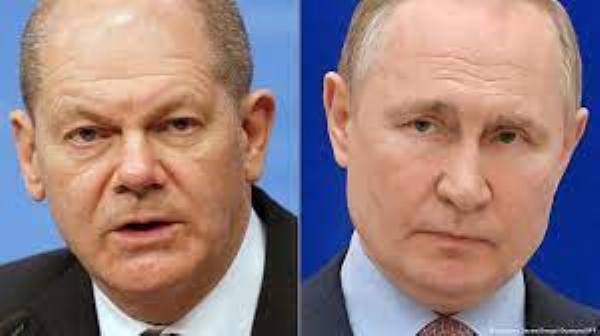Russia to accept only Rouble payments for gas export to Europe
European countries" dependence on Russian gas to heat their homes and power their economies has been thrown into the spotlight since Moscow sent troops into Ukraine on Feb. 24 and the subsequent imposition of Western sanctions aimed at isolating Russia economically. With the financial noose tightening and the European Union split on whether to sanction Russia"s energy sector, Putin hit back with a clear message -- if you want our gas, buy our currency.
Total Views |
Moscow, Mar 24: Russia will seek payment in rubles for gas sales from “unfriendly” countries, President Vladimir Putin said on Wednesday, sending European gas prices soaring on concerns the move would exacerbate the region’s energy crunch.

European countries' dependence on Russian gas to heat their homes and power their economies has been thrown into the spotlight since Moscow sent troops into Ukraine on Feb. 24 and the subsequent imposition of Western sanctions aimed at isolating Russia economically. With the financial noose tightening and the European Union split on whether to sanction Russia's energy sector, Putin hit back with a clear message -- if you want our gas, buy our currency.
"Russia will continue, of course, to supply natural gas in accordance with volumes and prices ... fixed in previously concluded contracts," Putin said at a televised meeting with top government ministers. "The changes will only affect the currency of payment, which will be changed to Russian rubles," he said. Russian gas accounts for some 40% of Europe's total consumption and EU gas imports from Russia have fluctuated between 200 million to 800 million euros ($880 million) a day so far this year. The possibility a change of currency could throw that trade into disarray sent some European wholesale gas prices up to 30% higher on Wednesday.
The Russian rouble briefly leapt to a three-week high past 95 against the dollar and, despite paring some gains, stayed well below 100 after the shock announcement. The currency is down around 20% since Feb. 24. "At face value this appears to be an attempt to prop up the Ruble by compelling gas buyers to buy the previously free-falling currency in order to pay," Vinicius Romano, senior analyst at consultancy Rystad Energy, said.
Putin said the government and central bank had one week to come up with a solution on how to move these operations into the Russian currency and that gas giant Gazprom would be ordered to make the corresponding changes to gas contracts. With major banks reluctant to trade in Russian assets, some Russian gas buyers in the European Union were not immediately able to clarify how they might pay for gas going forward.

